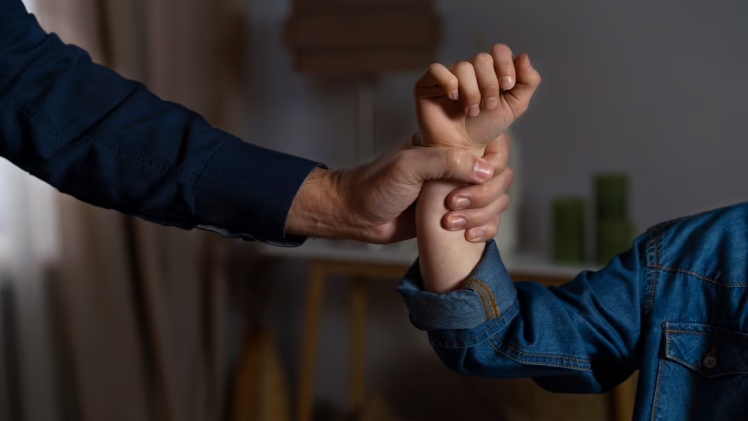Child abuse is a very hard-to-swallow topic and can be uncomfortable to discuss. But when protecting children, there’s no room for hesitation or turning away from the truth. Victims of abuse, especially kids, have a chance to feel the emotional and psychological effects even when they grow up. That’s why knowing the signs is essential to get help immediately.
Child abuse isn’t always easy to spot. However, some signs could lead you to believe the possibility of abuse. By learning these eight ways to recognize child abuse at home, children can get the appropriate protection from potential danger:
Changes in Behavior
It’s normal for children to undergo changes. However, what’s not normal is when it’s sudden.
A previously talkative and outgoing child suddenly becoming withdrawn or a usually confident child exhibiting fear or anxiety out of nowhere may be cause for concern. Acting out and displaying aggressive or inappropriate sexual behavior are also typical behaviors of abuse victims.
If someone you care for is showing any of these signs, seek out help from a therapist to address the underlying cause. And to take legal action, contact trusted law firms like Kelso Lawyers to get proper advice.
Scared to Be Home
When a child expresses fear of going home or dreads being around their parents, it is a major red flag. Even if the child does not explain why they are afraid to go home, take note and do some additional digging. This fear may stem from an abusive environment at home.
In addition, if the child avoids eye contact, becomes defensive when asked questions, or runs away from home, it may be a sign of potential abuse.
Excessive Fear of Adults or Particular People
Children who have experienced abuse may develop an irrational fear of adults or particular people. If a child seems scared beyond what would be expected in normal circumstances, it could be a warning sign that they are facing abuse. Kids might avoid adults in general or become scared of specific people they had an unfortunate experience with.
The fear could manifest itself in physical signs such as hiding, trembling, and shying away from touch. These types of behaviors should not go unnoticed and need to be addressed.
Unexplained Injuries
Unexplained injuries, such as bruises, cuts, or burns, are indications of abuse. If a child displays any physical signs of abuse that they might refuse to explain, it’s time to investigate further.
But remember that some forms of child abuse, such as emotional abuse, don’t leave physical marks. So, even if a child expresses no fear when discussing the potential cause of any injuries, it’s wise to remain vigilant and look out for other signs of mistreatment.
Lack of Hygiene
Poor hygiene can include infrequent bathing, unkempt hair, and fingernails, or an uncared-for physical appearance. While it’s the parents’ responsibility to ensure their child is clean and dressed appropriately, if a child expresses irritation or anxiety when it comes to hygiene, something is probably going on.
It’s important to note that children who are being abused may also start dressing inappropriately for their age. Another indication is that they seem to hide something using their clothing, such as always wearing long-sleeved shirts or jackets. There might be a bruise or mark they are trying to cover up.
Eating Habits Change
Overeating or not eating enough could be a sign of child abuse. There are also other signs to watch out for, such as refusing to eat, hoarding food, and being anxious during mealtimes.
An eating disorder is a common sign of children who may have experienced abuse like physical abuse or sexual abuse. In most cases, children lose their appetite, which may lead to drastic weight loss. In contrast, some may go in the opposite direction and start hoarding food. They do this in an attempt to feel a sense of control and do it as a coping mechanism.
Trouble Sleeping or Nightmares
If a child is having trouble sleeping or finds it hard to stay asleep, try to find out more about their condition. Although sleeping problems can also be a sign of some physical illness, you shouldn’t rule out the fact that a child may be experiencing abuse.
Frequent nightmares, becoming excessively afraid of the dark, waking up in the middle of the night crying, and a lot more unusual behaviors can point to a child being abused by someone.
Withdrawal From Family and Friends
If a child suddenly starts withdrawing from family activities, friends, and even school activities, this could point to something more sinister happening in their lives. Pay attention to how often they interact with other people, and if they start avoiding all sorts of social interaction, it could mean something is wrong. Talk to them about it, and if they are unwilling to share, it may be time to reach out for help to the appropriate authorities.
Final Thoughts
Child abuse is a serious issue that can have long-lasting consequences. Everyone should always be mindful of the possible signs of child abuse to ensure that the children in the community are safe and protected from harm. If you suspect a child is suffering, don’t hesitate to reach out for help. You could save them from a lifetime of pain and suffering.

